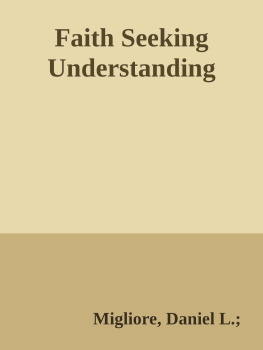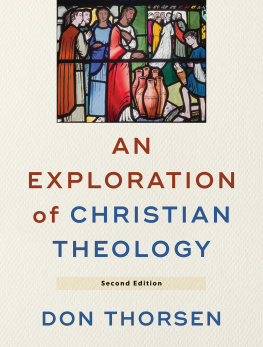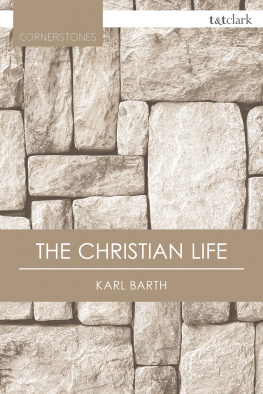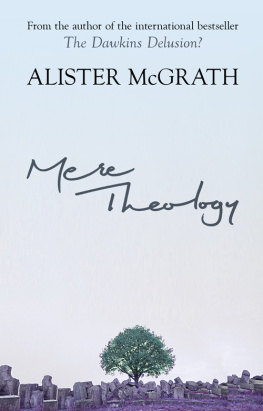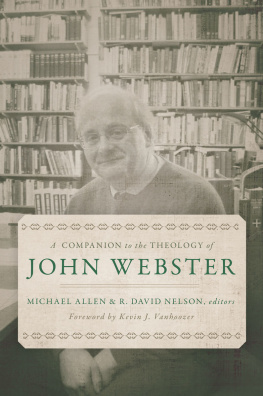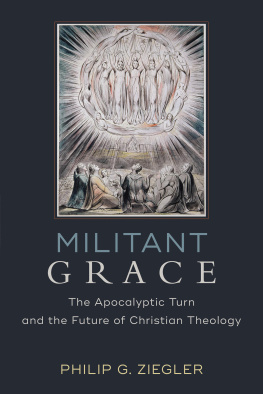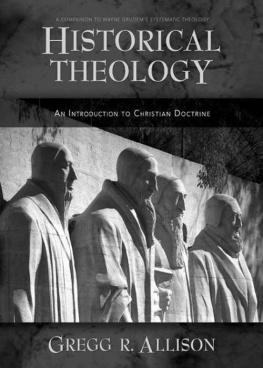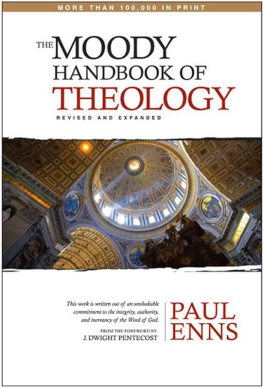Contents
First edition 1991 Wm. B. Eerdmans Publishing Co.
Second edition 2004 Wm. B. Eerdmans Publishing Co.
This third edition 2014 Daniel L. Migliore
All rights reserved
Published 2014 by
Wm. B. Eerdmans Publishing Co.
2140 Oak Industrial Drive N.E., Grand Rapids, Michigan 49505 /
P.O. Box 163, Cambridge CB3 9PU U.K.
Printed in the United States of America
Library of Congress Cataloging-in-Publication Data
Migliore, Daniel L., 1935- author.
Faith seeking understanding: an introduction to Christian theology /
Daniel L. Migliore. Third edition.
pages cm
ISBN 978-0-8028-7185-5 (pbk.: alk. paper)
ISBN 978-1-4674-4221-3 (ePub)
ISBN 978-1-4674-4187-2 (Kindle)
1. Theology, Doctrinal. I. Title.
BT65.M54 2014
230 dc23
2014012176
www.eerdmans.com
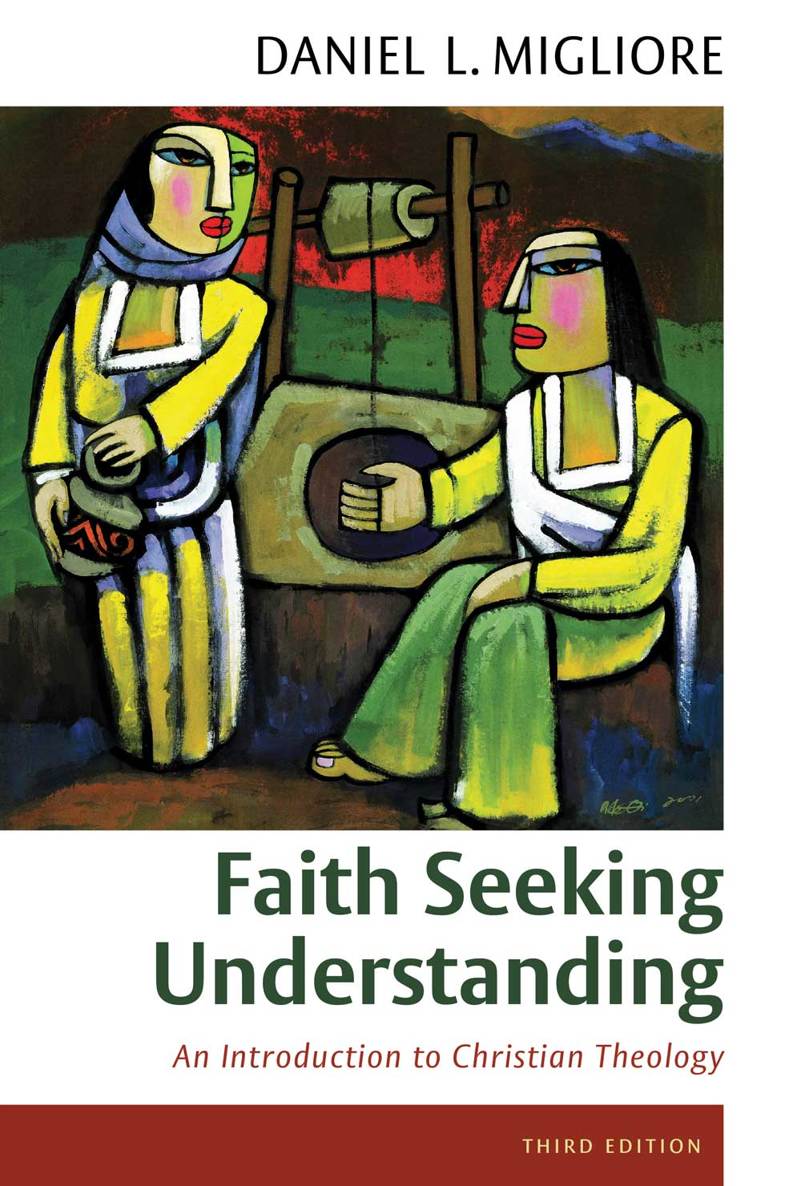
T here are several new features of the third edition of this book. Questions from readers of previous editions and my own desire to edit or amplify a number of passages in the text for greater clarity have prompted some rewriting and reorganization. I have also included a section on Christians and Muslims in chapter 13; written a new imaginary theological dialogue (the earlier three dialogues having proved to be one of the more popular marks of the book among readers); added a dozen or so suggestions for further reading at the end of each chapter; and substantially increased the number of terms in the glossary. The purpose of this edition remains the same as when the book was published nearly a quarter of a century ago: to provide a clear and challenging introduction to Christian theology that places Christ at the center; is both Reformed and ecumenical in perspective; includes both classical and contemporary theological voices; and ties theological reflection to Christian life, witness, and service.
I want to express my gratitude to President Craig Barnes and Librarian Donald Vorp for providing me with a space in the magnificent new library of Princeton Theological Seminary in which to prepare this revision. Thanks also to Kate Skebutenas, Reference Librarian, and other members of the staff of the library for their expert and cheerful assistance; to Bill Eerdmans, President, and Jon Pott, Editor in Chief, of Eerdmans Publishing Co. for their support and guidance through the several editions of this book; and to Jennifer Hoffman of Eerdmans for her careful shepherding of the intricate editorial process of transforming typescript to print. Most of all, I thank my wife Margaret for her unfailing love and encouragement, for her wise suggestions for improvement of the text, and for patiently enduring a husband who, though retired from most teaching responsibilities, still spends an inordinate amount of time in his study or in the library.
T he Bible proclaims good news in its very first verse: In the beginning God created the heavens and the earth (Gen. 1:1). The creation of the world is the first of the majestic and gracious acts of the triune God. It is Gods calling into existence the things that do not exist (Rom. 4:17). While the good news of Gods free grace has its center in the liberating and reconciling work of Jesus Christ and will have its final and victorious realization when God makes all things new (Rev. 21:5), the sovereign goodness of God is already at work in the act of creation. The triune God who eternally dwells in loving communion also welcomes into existence a world of creatures different from God. The creation of the world, its reconciliation in Jesus Christ, and its promised renewal and consummation are all acts of the one triune God, and they all exhibit the astonishing generosity and beneficence of this God.
In the first article of the Apostles Creed, Christians affirm their faith in God the creator, Maker of heaven and earth. Like all articles of the creed, this article is rich with meaning and invites inquiry. A right understanding of the confession of faith in God the creator is perhaps more important today than ever before. The reason for this is the fact that in our time every exposition of the doctrine of God as creator and of the world as Gods good creation is profoundly challenged by the ecological crisis. Evidence mounts almost daily that the crisis is of daunting proportions. The earth and the network of life that it sustains are in peril. In the view of some experts, the damage to the environment is already severe and in some cases perhaps irreversible. Nuclear accidents at Three Mile Island, Chernobyl, and Fukushima; the frequent reports of oil spills and leaking chemical dump sites; the ominous warming of the earth and increased acidity of rain; the harm done to the ozone layer; the reckless pollution of air, streams, and fields; the decimation of the great rain forests of the earth; the loss of thousands of species of life; the development and use of chemical, biological, and nuclear weapons these are but some of the items in the now-familiar litany of the degradation of the earth and the growing threat to all its inhabitants.
The gravity and scope of the ecological crisis give unprecedented urgency to the task of rethinking the Christian doctrine of creation. Any neglect, marginalization, or distortion of this doctrine in our time would only contribute to impending disaster. Development of a strong and comprehensive theology of the first article of the Apostles Creed must be a major part of every Christian theology today.
Critics of the Christian tradition, however, see matters very differently. They charge that Christianity is a primary source of the ecological crisis; it is a major part of the problem rather than a possible part of the solution. According to these critics, the seed of the rapacious attitudes toward the natural environment characteristic of the modern era is to be found precisely in the Christian tradition and its Scriptures. An accusing finger is pointed especially at the teachings that human beings alone are created in the image of God (Gen. 1:26a) and that they are commanded by God to exercise dominion over all the other creatures (Gen. 1:26b). Such teachings have given Western civilization religious justification for treating the natural environment in a ruthless manner; our wanton destruction of nature is sanctioned in the name of fulfilling the divine command. Thus historian Lynn White, Jr., who wrote what is considered the classic indictment of the Christian traditions attitude toward nature, concludes that Christianity bears a huge burden of guilt for our present ecological crisis.
While it is now widely agreed that Whites charges are based on a simplistic and one-sided reading of biblical teaching and classical Christian doctrine, the challenge to Christian theology cannot be brushed aside. It would be a mistake to react in a purely defensive way to the criticism of the Christian theological tradition as unfriendly to the natural environment. As numerous studies have shown, negative and domineering attitudes toward the body and the physical world are present in many strands of Christian theology and even in the Bible itself. Such attitudes have offered little theological resistance to the spirit of conquest that has characterized the relationship of humanity to the natural environment in Western history. Torn out of its biblical context, the divine command to humanity to have dominion over the earth has been twisted into an ideology of mastery. There is, therefore, ample reason for Christians to repent of their complicity in the abuse of the environment and for Christian theology to engage in serious self-criticism.
An important first step in this process is to identify some of the deep-seated attitudes and practices that underlie the ecological crisis, and to consider the searching questions they pose for Christian theology and the church.
Next page
